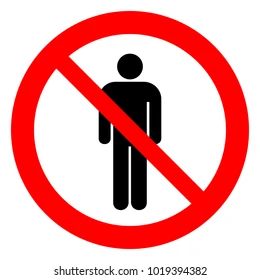A mini analysis on Little Women by Louisa May Alcott
If you don't know the basic plot of Little Women, it is about four sisters who live with their mother after their father goes off to war. Meg is the oldest, a very feminine character, with priorities in marriage and starting a family. Jo is the second eldest, and sort of the main character of the book. She is depicted as very tomboyish, and has no interest in marriage. Beth is the third eldest, and she is very quiet but enjoys music. Amy is the youngest, and is by far the most lively.
Little Women is often considered a feminist novel because it is not about men. It sheds light into the bustle of women in the home, and their relationships with each other. (If you know what the Bechdel test is, it passes with flying colors.) There are a few male characters, but they're not in the spotlight (except for Laurie, but whatever.) The story revolves around women, it is their story.
Jo’s character was pretty groundbreaking for the era it was written. A girl whose main goal is not marriage, who does not seek out male attention. She is everything but the male gaze, and while in the end she gets married… I recommend watching the 2019 movie rendition of this novel. It has an interesting take on why this happened. But even despite her slightly unsatisfying ending, the principle was there (it's the thought that counts guys.) She's very smart, and she is an excellent writer and Incessant reader. She is also very vocal about her opinions, ones which she formed mostly on her own or from her own gathering of knowledge (as opposed to just absorbing them from those around her, if that makes any sense.)
Another aspect of this! Jo’s sister Meg, is not quite the same. She wants to get married and have kids, things a woman would traditionally end up doing. However, this is not villainized. Louisa May Alcott was able to recognize and validate that part of feminism is that women are no less feminist by the path they choose. While Jo wishes to keep Meg from marrying off, (“I just wish I could marry Meg myself, and keep her safe in the family”) Alcott does an excellent job of justifying Meg’s position. (“Meg and John begin humbly, but I have a feeling that there will be quite as much happiness in the little house as in the big one.”) And while you have all probably heard the quote of “Just because my dreams are different from yours, it doesn't mean they are unimportant” I'm pretty sure it's not in the book. (I went through my copy again trying to find it, I couldn't, but maybe it's hiding somewhere..) Thank you to Greta Gerwig though.
!!SPOILERS!! Now we can talk about Laurie. When he proposes/confesses to Jo, she says no! Based solely on the reason she just doesn't see him in that way! Laurie is literally depicted as the perfect man, but she says no! Because she has the choice! Yay Jo! !!SPOILERS END!!
I'm not going to talk a lot about how cool Louisa May Alcott is in an effort to separate art from artist, but let me just mention how awesome she was. A suffragette, abolitionist, and obviously a feminist. When the civil war happened in 1861, she wanted to join the union army but couldn't because she was a woman, and so she sewed uniforms and waited until she was of age to join as a nurse. Also, she never married!
Anyway, I would very much recommend reading Little Women if you haven't already. It's an enjoyable book, while the language can be a bit hard to understand, it really isn't too bad. While this post was mostly about the feminist aspects I took from this book, there is alot to this book I didn't talk about that anyone could find enjoyable. Happy Reading!
-Olive Jan


I absolutely love Little Women and have probably read it over five times. Like you mentioned, I really appreciate how Louisa May Alcott demonstrated that their are many different ways to be a feminist. You can want to get married and have kids but still be a feminist!! I also never knew about how amazing Louisa May Alcott was so it is really cool that you incorporated some information about her in your post. (I will definitely be doing some more reading about her.) Overall, Great post! (Also I love that you mentioned the Bechdel test, I always think about it when I read books or watch shows and movies.)
ReplyDeleteThere is so much in that book and about that author to talk and learn about!! So glad to see another little women enjoyer :)
DeleteThanks for posting! Historical fiction has never been my preferred genre, although I can appreciate an attention to detail and well-written characters present in a novel like this. I especially appreciate novels like this that aren't over-the-top in the issues they're trying to make known, which often ends up with a forced and ingenuine atmosphere in badly written literature. For the sake of the relevance of this book (and my mother's appreciation for it), I may have to read it.
ReplyDeleteYour mom has good taste. Read it for her!
DeleteI heard of this book before, but now I want to read it! I love your intro with how you linked Purple Hisbiscus with Little Woman! Also, I like how you describe the sisters and their choices and how whatever they chose is ok! I wonder what happens to Laurie after Jo rejected him.
ReplyDeletespoiler but he marries her little sister.
DeleteI love Little Women and the movie with it! Though it has a few problems (mostly just because of the time) it's mostly far ahead of social norms from then and I think it holds up really well.
ReplyDeleteyeah, there are definitely some questionable things on the role of women, and a white woman's 19th century book is certainly not the peak of feminism. (also, in the book the professor is german, but in the movie he is spanish and it bothers me that no one talks about it.)
DeleteHi Olive!! I love Little Women and this post about it! I read it when I was pretty young, and it was very memorable. I actually haven't watched the movie, so I definitely need to see it (along with Hilda of course)!
ReplyDeleteSounds like a TV marathon in the making! Dale Furacão!
Delete